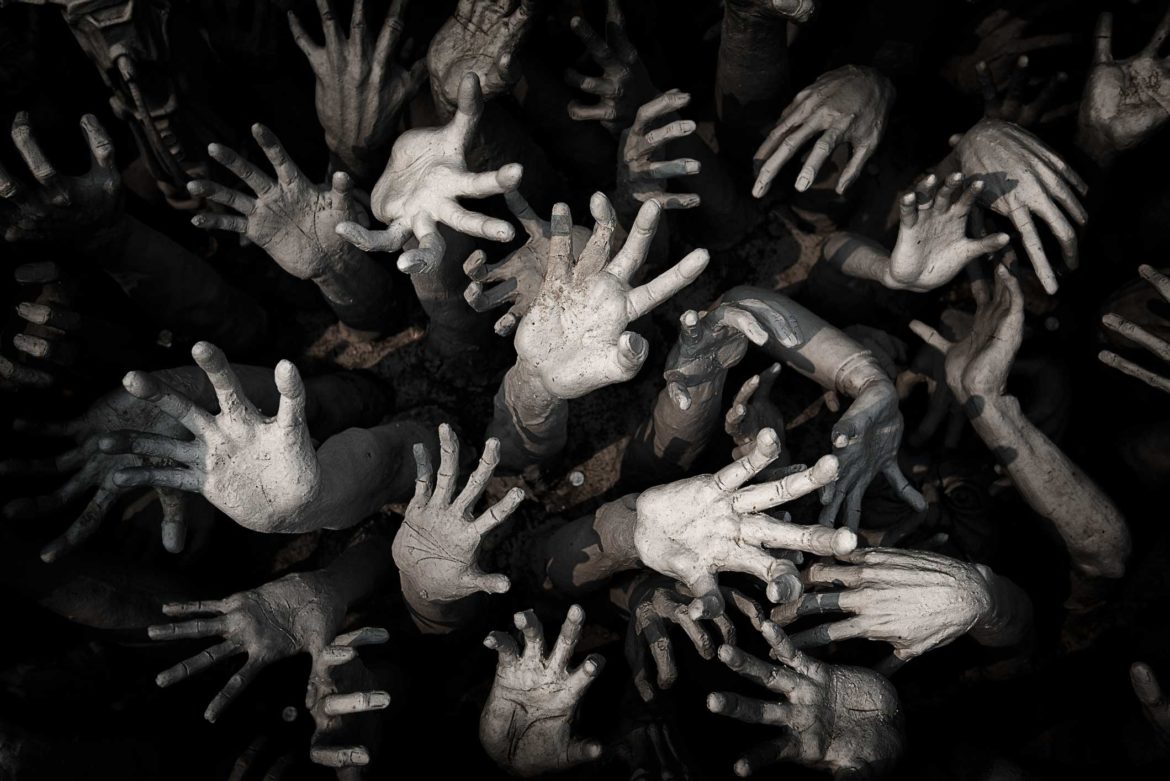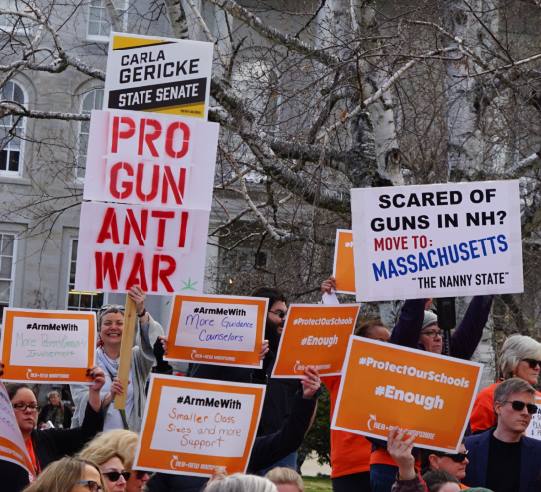Today, my opponent has a write up about the opioid crisis in the Union Leader, “Working together to solve the opioid crisis.”
While the solutions and stakeholders presented are “kinda-sorta” steps in the right direction, this piece fails to mention one very important aspect, the person who is at the heart of the crisis: the drug user.
Until we look at the reasons people use, and address those core issues, things will not improve. So what about these folks?
Why is it that some people get addicted to opioids, whereas other don’t? Hint: the more productive you are, the better your outlook on life, and the more robust your social network, the less likely you are to be swept up into drug abuse. This excellent video can help you better understand the dynamics behind drug abuse, which oftentimes stems from personal trauma.
Now, let’s look at our current approach as it relates to the drug user: penalize and punish. Do you think putting traumatized people in jail–where they still routinely have access to drugs, by the way–is the best course of action? Is it the best use of YOUR money, keeping in mind it costs more than $34,000 per inmate per year?
What happens when someone is arrested? Their lives spiral further out of control. If they have a job, they might lose it. If they don’t have the money for bail, they are incarcerated in the equivalent of modern day debtors’ prisons, as explained in this article. When they get out, they struggle to find gainful employment.
If a drug user commits a property crime–steals or hurts someone–I am all for intervention and possibly incarceration, or better yet, restitution to the property owner. BUT, if someone’s only act is putting a substance in their own body, why is the government involved at all?
Who owns you? If you are not free to make your own choices about your own body, are you actually free?
The War on Drugs is an abject failure that has destroyed millions of lives. From the person who is sent to jail, to the partner who is left outside to fend for the family, to the children who are raised in broken homes. And don’t forget the taxpayer–YOU!–footing the bill.
Is it worth it just to stop peaceful, voluntary behavior you may disagree with? Are you willing to pick up a gun, walk to your neighbor’s house, place them under arrest and lock them away in your basement for their personal choices? Would you be willing to shoot your neighbor if they resist? If you are unwilling to do so YOURSELF, why outsource this cruel and unusual behavior to someone else?
Don’t. It is wrong.
The entire criminal justice system needs to be reformed. We need to look harder at harm reduction solutions, and this includes acknowledging that criminalizing peaceful, voluntary behavior is a bust.
In fact, I think there is a plausible argument to be made that the heroin epidemic is partly the government’s fault. They lied about the harm of marijuana, a natural product known to cure a myriad of health issues. They lied so hard, anyone with an iota of common sense eventually stopped believing what they were saying. So, if they lied about cannabis, the thinking could go, maybe they lied about the destructive nature of heroin too?
Of course, heroin IS a dangerous and physically addictive product. But we should be giving out accurate information, and we should show users compassion and treat them like patients, not criminals.
Manchester’s Safe Station program does this. I applaud all who are helping in this fashion. The 9-11 Immunity and Narcan bills from a few years ago were also good steps. Sadly, the police lobbied hard against these two common sense solutions. It is almost as though they have an incentive to not see an end to the War on Drugs…
Oh wait! They do! Did you know the Top Five contributors against marijuana reform are:
- Police unions
- Prison guards
- Private prisons
- Pharmaceutical companies
- Alcohol companies
In any ordinary setting, you would acknowledge this is monopoly protectionism. But your thinking is clouded by years and years of lies. I was told by a cannabis activist that he estimated if the War on Drugs ended, police departments would need to shrink by 40-60%. Sadly, this creates a perverse incentive to continue with failed and destructive policies.
OK, problems, problems, problems! How do we solve this sticky wicket?
On a federal level, the arch-evil Schumer recently proposed legalizing marijuana. Personally, I prefer decriminalization, meaning it’s simply nobody’s business but yours, and this way, we don’t create a new taxable revenue stream for the government to siphon off to use on whatever next new "good" bad idea it conjures up to control the masses.
But, I live in the real world, and legalizing marijuana on a federal level and then leaving it up to the states (as everything should be) is still a better solution than what we currently have.
I would go even further, and suggest that the federal government look at the positive outcomes from countries that have legalized all drugs. Yes–that happened in Portugal and Norway, and guess what? The sky didn’t fall. The world didn’t come to an end. All that happened is resources were reallocated to help people rather than hurt them.
Face it, IF the War on Drugs–a War on PEOPLE and what they choose to put in their own bodies–could be won… surely we would have “won” it by now? Trillions of dollars have been spent, millions of people have had their lives destroyed, and know what? People still choose to use.
The traditional role of government was never intended to tell you how to live your life. In fact, the opposite is true. You can do what you want as long as you are not harming anyone else. The government is supposed to be restrained, not YOU.
On a local level:
- Funding for Granite Hammer/Shield should be reallocated to mental health and treatment facilities that are equipped to deal with the core issues that lead to drug abuse.
- Police need to stop arresting people for drugs when there is no related crime. This will free up valuable police resources to go after real property crimes.
- End undercover drug operations–which so often lead to abuse, even here in New Hampshire, where several officers were recently fired from MPD. I recommend the book, “Good Cop, Bad War,” for anyone who wants to learn more about the cognitive dissonance that takes place when we ask our officers to pursue undercover operations.
- The opioid prescription management programs must be monitored to assure they don’t lead to the rejection of patients who have legitimate medical needs for opioids–often an unfortunate and real consequence of such monitoring programs.
- If police forces need to shrink as we eliminate or reallocate resources away from the punitive War on Drugs, let’s start talking about and planning for this outcome now. Let’s look a hiring practices and attrition as possible solutions to ensure there is no backlash when the time comes to reduce the size of our police departments to reflect real crime levels.
- End policing-for-profit, and end the collusion between local and federal authorities in New Hampshire to circumvent recent legislation designed to constrain this abuse of power.
- Education: Tell children the truth about drugs, based on objective, scientific facts. Don’t lie to them… you see the mess this creates! Kids aren’t stupid, and they have information at their fingertips 24/7. Make a compelling case against drug use for minors based on facts that affect them and their physical well-being.
- Community: We should voluntarily support institutions and nonprofits in Manchester and Goffstown that successfully work with drug users and former users. I support Liberty House, an organization that works with homeless and needy veterans, but there are many other worthy local causes.
I understand some of my constituents may be shocked by my views, but I have studied this issue for decades, first as a lawyer, and then as an activist. We cannot continue on the same failed path; that is literally the definition of insanity!
What we need now is someone like me in the Senate to assure we do right by everyone involved: the drug users, the police, the taxpayers, and that we solve this problem once and for all by addressing the root issues with compassion and empathy, rather than cruelty and punishment.
It is time to heal our world, and this starts with the bravery to speak out against these injustices. Help me lead the way.


